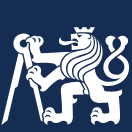Detailed introduction of Mendel University in Brno:
Introduction
Mendel University in Brno is a famous public comprehensive university in the Czech Republic. It is located in Brno, the second largest city in the Czech Republic. It is named after Gregor Mendel, a botanist and the father of genetics. It has an outstanding tradition and excellent achievements in teaching and research.
Overview
Number of students and faculty: As of 2021, there are more than 33,000 students, including nearly 25,000 undergraduates and nearly 10,000 graduate students, with about 3,500 teachers and staff.
Course settings: More than 100 graduate degree programs taught in Czech and English are offered, covering a wide range of fields such as natural sciences, social sciences, medicine, law, education and sports. Specific majors include medicine, chemistry, psychology, sociology, law, economics, computer science, etc.
History
Founded on July 24, 1919, its predecessor was Tabor College. Before 1994, it was called Brno Agricultural University. From 1994 to 2009 During the period of 1910, it was named Mendel University of Agriculture and Forestry in Brno.
Founded in 1919.
School Strength
Teaching Staff: It has a team of highly qualified teachers, including many internationally renowned scholars and experts. They not only enjoy a high reputation in the academic community, but also provide students with rich academic experience and teaching guidance.
Scientific Research Results: The school's scientific research team has conducted in-depth research in many fields and achieved remarkable results. For example, the research results in genetics, agricultural science, environmental science and other fields have a certain influence internationally and have made important contributions to promoting the development of related disciplines.
International Cooperation: We have signed cooperation agreements with more than 200 universities around the world, and carried out various forms of cooperation such as academic research, educational exchanges, and dual degree programs, providing students with broad international exchange opportunities and platforms, and enhancing the school's international reputation and influence.
Nature of the institution
Public university.
Educational philosophy
Focus on cultivating students' innovation ability, practical ability and comprehensive quality, emphasizing the combination of theory and practice, allowing students to master professional knowledge and skills in practice through practical teaching, scientific research projects, etc., cultivate students' independent learning ability and teamwork spirit, and are committed to cultivating professionals with international vision, social responsibility and innovative spirit to adapt to the needs of social development and globalization.
Key laboratories and disciplines
Key laboratories: The school has a number of advanced scientific research laboratories, such as plant genetics and breeding laboratories, agricultural ecology laboratories, food science laboratories, etc., which provide strong support for scientific researchers and students to carry out high-level research and play an important role in research in related fields.
Key disciplines: Agricultural science, forestry science, horticulture, economics, regional development and international studies are the key disciplines of the school, among which agriculture and forestry majors are ranked first in the 2023 QS World University Subject Rankings. 220.
Faculty
The school has five colleges and one research institute, as follows:
College of Agricultural Sciences: covers multiple departments such as plant biology, applied and landscape ecology, agricultural systems and bioclimatology, and crop science, providing comprehensive agricultural-related professional courses and research directions.
College of Forestry and Wood Technology: includes departments such as forest management and applied geoinformatics, geology and soil science, and forest botany, focusing on teaching and research in the fields of forestry resource cultivation, management, and wood processing technology.
College of Business and Economics: has departments such as economics, business economics, management, statistics and operations analysis, and cultivates students' professional knowledge and skills in economics, management, and finance.
College of Horticulture: includes departments such as fruit cultivation, horticultural machinery, vegetable cultivation and floriculture, and is committed to cultivating talents in the cultivation and cultivation of horticultural plants and landscape design.
College of Regional Development and International Studies: provides professional courses such as regional development and international territorial studies, and cultivates students' analysis and research capabilities in regional economy, social development, and international affairs.
College of Lifelong Education: mainly responsible for continuing education and vocational training and other related work.
Ranking
QS Emerging Europe and Central Asia University Rankings 2022: 74th.
QS World University Rankings 2021: 701-750th.
Cost
Courses taught in Czech are usually free for Czech students, and may charge a certain fee for international students, but it is relatively low. The tuition fee for courses taught in English ranges from about 3,000 to 5,000 euros per year, and the specific fee varies depending on the major.
Campus
Campus environment: The modern campus is located in Brno. The campus is shaded by trees and has a beautiful environment, providing students with a good learning and living environment.
Teaching facilities: Equipped with advanced teaching facilities and laboratories, including modern classrooms, libraries, computer laboratories, scientific research instruments and equipment, etc., to meet the students' learning and scientific research needs.
Culture and life: The school often holds various academic lectures, cultural activities and sports events to enrich students' extracurricular life and promote exchanges and cooperation among students. In addition, the school also has student associations and international student clubs, providing students with a wide range of social opportunities and cultural exchange platforms.
-

The University of J. E. Purkyne in Ústí nad Labem
-

Mendel University in Brno
-

Charles University
-

Czech University of Life Sciences in Prague
-

University of South Bohemia in Ceské Budejovice
-

Metropolitan University Prague
-

Technical University of Liberec
-

Palacky University, Olomouc
-

Brno University of Technology
-

Czech Technical University in Prague
-

Mesoamerican University
-

Istmo University
-

Mariano Galvez University of Guatemala
-

Regional University of Guatemala
-

Galileo University
-

Francisco Marroquín University
-

Rafael Landívar University
-

University of the Valley of Guatemala
-

University of San Carlos of Guatemala
-

Technological Institute of Tlaxcala Plateau
-

Golfo University
-

Technological University of South Sonora
-

Technological University of Huejotzingo
-

Tizimín Institute of Technology
-

Chilpancingo Institute of Technology
